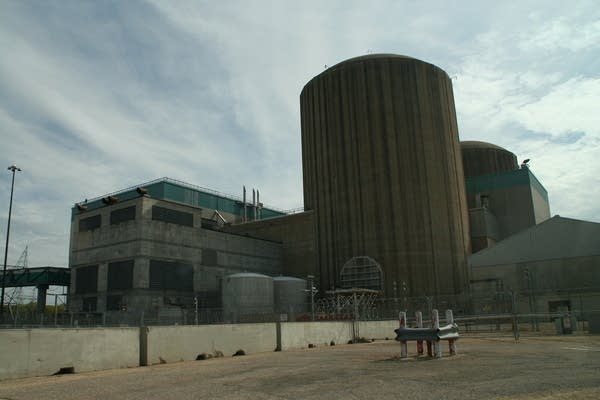Is Prairie Island safe enough to produce more electricity?
Go Deeper.
Create an account or log in to save stories.
Like this?
Thanks for liking this story! We have added it to a list of your favorite stories.

Xcel Energy has asked for permission to produce 15 percent more electricity at Prairie Island nuclear power plant at a time when plant has been required to correct its safety record. Critics wonder if the plant is safe enough to produce more power.
Prairie Island is one of only a handful of nuclear plants in the country, under special scrutiny from the Nuclear Regulatory Commission, that have been required to fix systemic human error problems
The safety lapses identified by the Nuclear Regulatory Commission did not result in an immediate threat to safety, of workers or the public, but they suggested a problematic pattern, according to Steven West, who supervises nuclear regulatory reviews in the midwest.
"If only one person makes a mistake and we catch that or the licensee or utility catches it, that's easy to take care of, to correct and fix," West said. "But if you start seeing multiples of that, it indicates a larger problem, and it's more difficult usually for the utility to correct that."
Turn Up Your Support
MPR News helps you turn down the noise and build shared understanding. Turn up your support for this public resource and keep trusted journalism accessible to all.
Here are three examples of problems the agency found:
In July of 2008, workers discovered that a valve was closed, that should have been open. It was in the wrong position for 138 days. The valve wasn't labeled. It was part of a back-up cooling system, and the primary system was working properly.
That same day, Xcel discovered that some pipes carrying high temperature or high pressure fluids were too close to other pipes, that could be damaged if the high-pressure pipes were to break.
And in October 2008, workers packed up equipment that included radioactive materials to be trucked to Pennsylvania, and during the ride the materials shifted. By the time they arrived, the radioactivity leaking from the container was higher than it should have been.
Scott Northard, the Xcel executive in charge of fixing Prairie Islands problems, attributes the problems to complacency.

"Over time, we've found that people can become complacent," Northard said. "And, an important thing so people don't get complacent is that we need to continuously reinforce and coach workers so that we don't fall back into complacency or non-use of the tools."
Northard says the Xcel has stepped up training and gotten stricter about using error-reduction tools, or procedures workers are supposed to follow to make sure they're performing tasks correctly.
He says the plant tracks how long it goes without a problem. Before the recent extra attention to procedures, it was typical to have an error about every 50 days. Lately they've gone more than a hundred days without a problem.
Xcel is in the midst of getting permission to boost power at the plant by 15-percent. The company plans to invest $600 million in new and refurbished equipment.
Northard says the higher power output won't make the plant any less safe. But critics of nuclear power say producing more electricity, which is happening at plants all over the country, will result in a narrower margin of safety.
Edwin Lyman, senior scientist at the non-profit Union of Concerned Scientists, says the recent management record at Prairie Island calls into question its ability to operate the plant safely, especially if it's producing more power.
"If there's safety culture issue like the type that has already been observed at Prairie Island, where there are critical safety systems that were being left in a mode where they wouldn't operate, then the overall risk is going to increase unless you're able to provide the diligence that's required," Lyman said.
West, of the NRC, says Xcel is on track to correct its problems, but it will take time.
NRC inspectors will meet with plant officials again in early February to review their progress.
The state has given Xcel permission to increase power at Prairie Island; the utility plans to ask the federal government for permission soon.
Dear reader,
Political debates with family or friends can get heated. But what if there was a way to handle them better?
You can learn how to have civil political conversations with our new e-book!
Download our free e-book, Talking Sense: Have Hard Political Conversations, Better, and learn how to talk without the tension.





